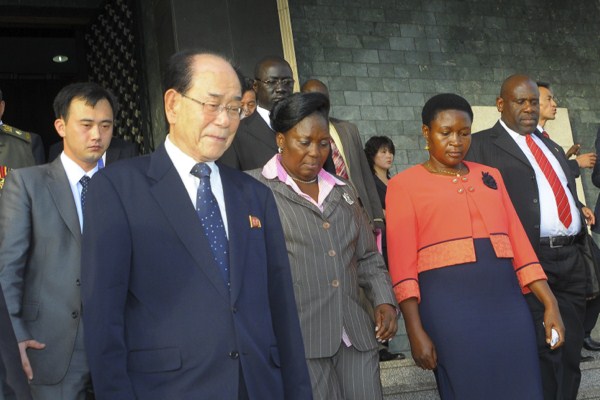Uganda and North Korea agreed to strengthen bilateral ties during a visit from Kim Yong Nam, chairman of the Presidium of the Supreme Peoples’ Assembly of North Korea, in late October last year. In an email interview, Andrea Berger, a research fellow at the Royal United Services Institute, discussed North Korea’s ties with Uganda.
WPR: How extensive are North Korea’s ties with Uganda, and how has the relationship changed since Kim Jong Un came to power?
Andrea Berger: North Korea and Uganda have had positive bilateral relations since the mid-Cold War. At the time, the North Korean foreign policy apparatus was in full gear. It sought to court as many governments as it could in hopes of undercutting rival South Korea’s influence overseas; support “anti-imperialist” movements that would erode the strength of its enemies; and bolster the foreign state and nonstate groups that were friends of friends—namely the Soviet Union, China and Cuba. Pyongyang first truly became active in Uganda during this time.

